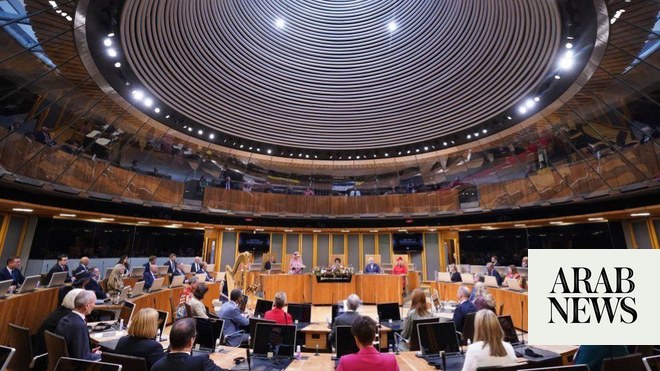
Plans to stop UK public bodies boycotting foreign countries and British companies that trade with them represent a further attack on the right to freedom of expression, civil society groups have said.
Officials from the Department for Levelling Up, Housing and Communities (DLUHC) have said the boycotts, divestment and sanctions bill, announced in last year’s Queen’s speech and designed to stop actions against Israel, will be tabled soon.
The move, first reported by the FT, comes amid anger over the crackdown against protesters at last week’s coronation of King Charles, days after the Public Order Act was given royal assent.
The bill would outlaw campaigns, including those relating to the purchase of goods and services or investments. The government has previously highlighted a 2014 Leicester city council motion banning goods from illegal Israeli settlements, while the communities secretary, Michael Gove, has claimed the Israel-targeting BDS (boycotts, divestment and sanctions) movement is fuelling antisemitism.
However, 60 civil society groups under the right to boycott umbrella claim the bill will stifle social and climate justice campaigns.
Ben Jamal, the director of Palestine Solidarity Campaign UK, said it was “yet another example of this government attacking democratic participation”.
He said: “With support growing around the world for the call issued by Palestinian civil society for Boycott, Divestment and Sanctions, the British government seems determined to shield Israel, and companies involved in its occupation, from accountability for its violations of human rights and international law.
“This bill will weaken campaigns against deforestation, environmental pollution, and the exploitation of children and workers. That is why such a wide range of groups have come together, from trade unions, charities and NGOs, to faith, climate justice, human rights, cultural, campaigning, and solidarity organisations. How can we rely on ministers to uphold ethical standards around the world while they chip away our democratic rights at home?”
In February, despite opposing the BDS movement, the Union of Jewish students passed a motion opposing the bill, saying it would curtail “the democratic right to non-violently protest”.
Ruth Ehrlich, head of policy and campaigns at Liberty, said: “For a government that professes to care about free speech, the proposed anti-boycott bill, once again, shows their flimsy commitment to protecting freedom of expression.
“This bill must be seen in the context of wider government attempts to curb our rights to protest and for people to stand up for what they believe in. This bill sets an extremely dangerous precedent, and its potential impact is harmful and wide-ranging. We urge the government to rethink its plans.”
The bill’s opponents say boycotts, divestment and sanctions have been used to confront injustice historically, including the transatlantic slave trade and apartheid South Africa.
Unison said it could “silence any attempt to shame China’s terrible treatment of the Uyghurs”.
Dave Timms, head of political affairs at Friends of the Earth, said fossil fuel divestment had led to institutions with a combined value of more than $40tn (£32tn) diverting their money away from polluting industries. “Banning public bodies from using these vital tactics unless they support UK foreign policy would be a frightening and authoritarian step,” he said.
A DLUHC spokesperson said it would legislate “as soon as parliamentary time allows”, adding: “We are firmly opposed to local boycotts which can damage integration and community cohesion, hinder exports, and harm our economic security.”











